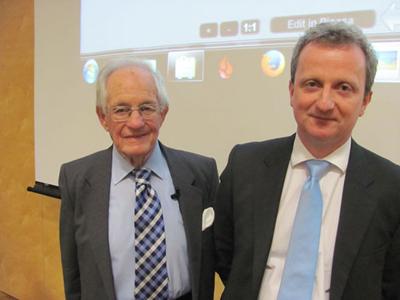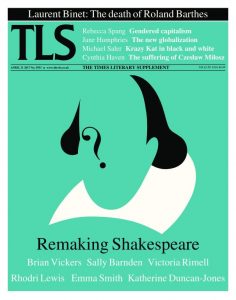
Edgar Feuchtwanger, OBE
By Tony Kushner
The History Department and the Parkes Institute are delighted to share the good news that Edgar Feuchtwanger has been awarded an OBE in the 2021 Queen’s Honours List for services to ‘Anglo-German understanding and history’. Edgar, who was born in Munich in 1924 into a distinguished German Jewish family of bankers and culture (his uncle was the famous and influential novelist, Lion Feuchtwanger) came to Britain as a child refugee in February 1939.
Continue reading →









